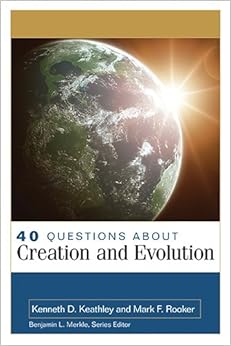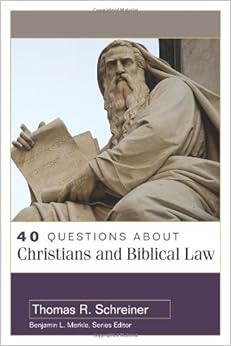 Here is a shocker: if a you write a book on creation and evolution you will make no one happy. By the mere mention of "creation" you have alienated all who hold to naturalistic evolution. If you hold to a literal seven day/24 hour creation, you will find yourself at odds with those who are more progressive thinkers. If you hold to theistic evolution you will find yourself at odds with fundamentalist Christianity.
Here is a shocker: if a you write a book on creation and evolution you will make no one happy. By the mere mention of "creation" you have alienated all who hold to naturalistic evolution. If you hold to a literal seven day/24 hour creation, you will find yourself at odds with those who are more progressive thinkers. If you hold to theistic evolution you will find yourself at odds with fundamentalist Christianity. In other words, if you write a book about creation and evolution, you are stacking the deck against yourself. So I give major props to authors Kenneth Keathley and Mark F. Rooker for writing a fairly large, fairly comprehensive work that covers 40 questions spanning the theology creation to questions on intelligent design. The work, entitled 40 Questions About Creation and Evolution, is not going to satisfy everyone...in fact, it probably won't make a lot of people happy. Yet there are some real gems in this book that are waiting to be found.
There are some great chapter in this book. For instance chapter three on why the doctrine of creation is important and chapter four on creation in the grand narrative of the Bible I found incredibly helpful in locating the doctrine of creation in both systematic and biblical theology. Further, the authors provide some solid depth in their discussion on evolution without going too deep for most readers.
I have some concerns though. For one, probably the great challenge facing the traditional view of creation are the parallels that exist from other ANE material. Here is the dilemma: it seems that Israel basically functioned with a view of the cosmos, that while interesting and absolutely meaningful, cannot be considered "scientific." Authors like Robin Parry (in his great book The Biblical Cosmos) have spent a great deal of time showing how Israel largely functioned with the framework of the ANE while also transforming the mythological nature of those stories to reflect Yahweh.
The authors spend very little time interacting with perspective and quickly dismiss it. What limits the book is the authors lack of interaction with some of the "weather language" that can be found in the Psalms. It is clear from passages outside of Genesis that the Israelites did not follow what we call a "scientific" perspective. I also found puzzling their lack of interaction with major authors that deal with these issues.
I understand that in a book that is attempting to answer 40 different questions, you have to pick and choose what questions you deal with and with how much depth you can actually answer those questions. However, the challenge to me is NOT with evolution as much as it is identifying what Israel's cosmology was. That answer cannot be identified by only looking at Genesis 1-11. It must take into account all of the OT.
This by far is one of the greatest weaknesses of the book. I think that the book CAN be helpful. I think the authors defend Young Earth Creationism well. However, I felt like I was simply reading a rehashing of old arguments that advance the discussion very little. That isn't to say that this is a bad work--just unmemorable and, unfortunately, already dated.
*Thanks to Kregel Academic for providing a free review copy of this work in exchange for a fair review*


